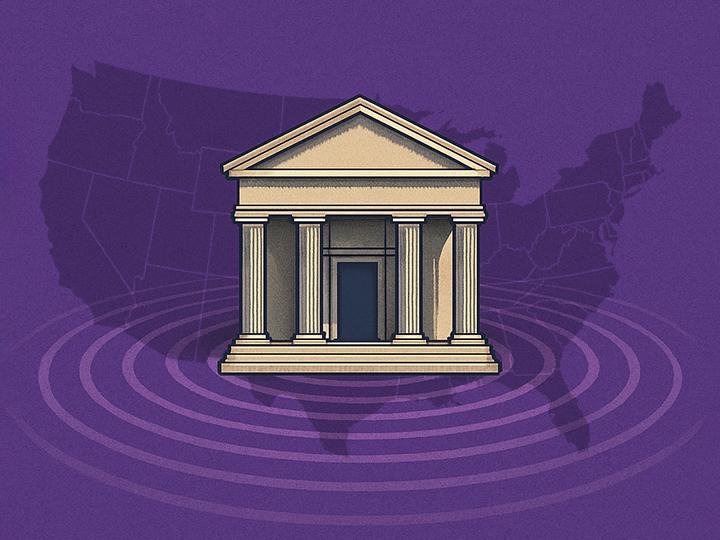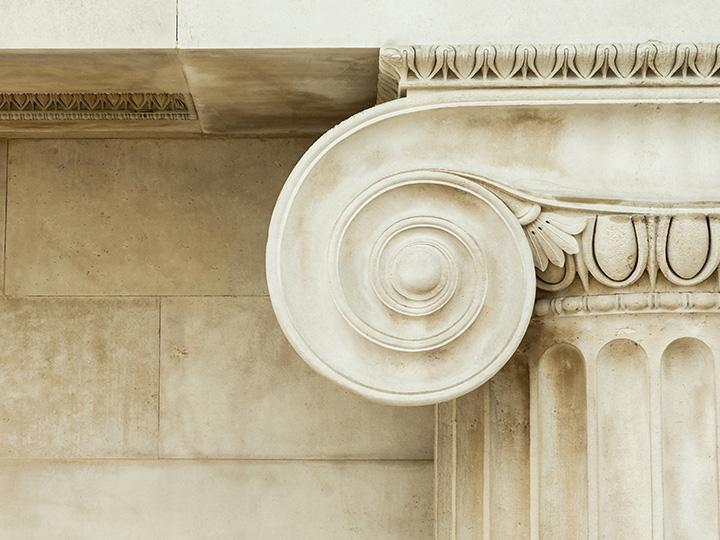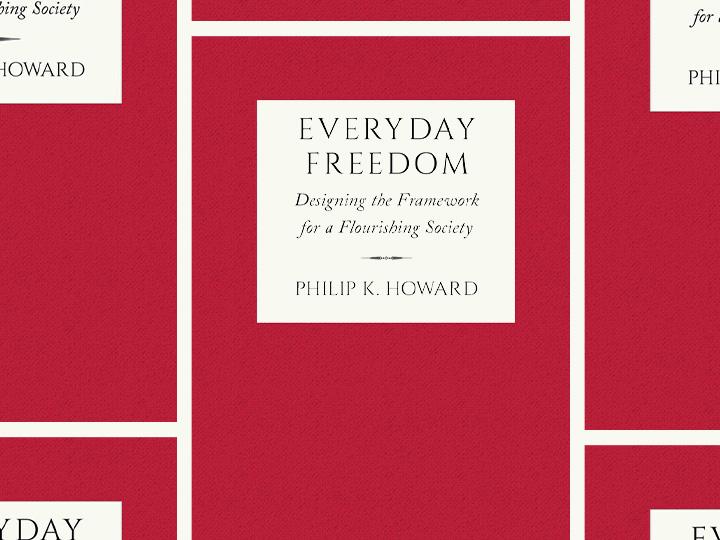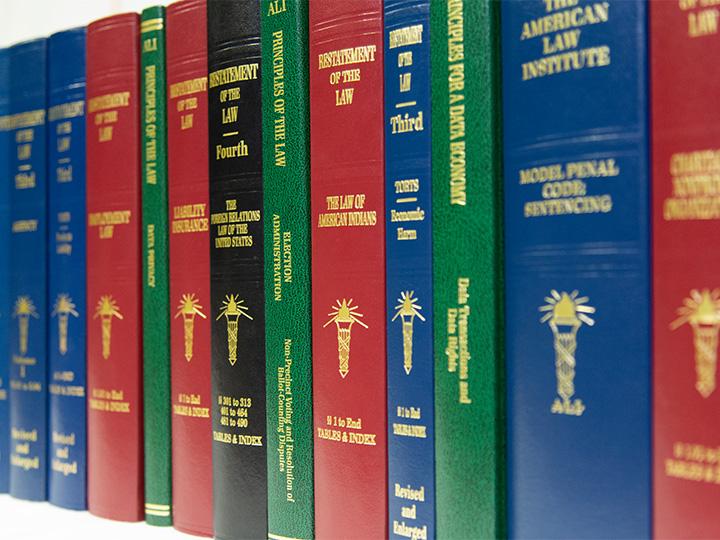Faithless Electors: SCOTUS Decisions and Implications for November
On July 6, the Supreme Court of the United States held that states may replace and even punish “faithless electors,” the term used for a member of the U.S. Electoral College who does not vote for the presidential or vice presidential candidate they pledged to support. This episode will consider the implications of the Court’s ruling and reasoning for a broader set of questions on the Electoral College system and what might happen in this year’s election.
What if there is a 269-269 tie (hardly impossible given current political climate)? What if the electoral votes from one or more states are disputed in Congress, as might happen if a state’s legislature attempts to repudiate the certification of the state’s popular vote on the ground that it was tainted by some form of fraud (perhaps involving absentee ballots distrusted by the state’s legislature)? Is there anything that can be done now, before voting occurs in the fall, to improve the chances that any such Electoral College anomalies will be handled through the rule of law, in a way publicly perceived as appropriate under the Constitution, rather than perceived as a lawless power grab? Steve Huefner will lead the discussion.
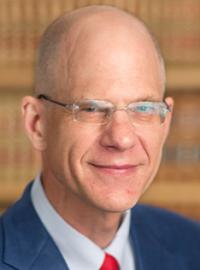
Edward B. Foley
Edward (Ned) B. Foley is the Charles W. Ebersold and Florence Whitcomb Ebersold Chair in Constitutional Law and the Director of Election Law at The Ohio State University Moritz College of Law.
In January 2020, Ned published a new book, Presidential Elections and Majority Rule: The Rise, Demise, and Potential Restoration of the Jeffersonian Electoral College. His book Ballot Battles: The History of Disputed Elections in the United States was published by Oxford University Press in December 2015.
He served as Reporter for The American Law Institute’s Principles of the Law, Election Administration: Non-Precinct Voting and Resolution of Ballot-Counting Disputes.
While he has special expertise on the topics of recounts, he is conversant in all topics of election law, including redistricting and campaign finance, and recently co-authored a casebook Election Law and Litigation: The Judicial Regulation of Politics (Aspen 2014), which covers all aspects of election law. He and his casebook co-authors also have a contract with Oxford University Press to write a treatise on election law—remarkably the first of its kind in the United States in over a century. He is also a co-author of From Registration to Recounts: The Ecosystems of Five Midwestern States (2007).
Ned has taught at Ohio State since 1991. Before then, he clerked for Chief Judge Patricia M. Wald of the U.S. Court of Appeals and Justice Harry Blackmun of the United States Supreme Court. In 1999, he took a leave from the faculty to serve as the state solicitor in the office of Ohio’s Attorney General. In that capacity, he was responsible for the state’s appellate and constitutional cases.
Ned received his B.A. from Yale College and his J.D. from Columbia Law School.
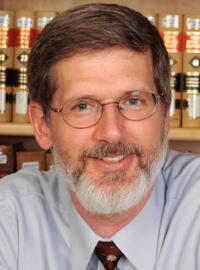
Steven F. Huefner
Before joining The Ohio State University Moritz College of Law faculty, Steve Huefner practiced law for five years in the Office of Senate Legal Counsel, U.S. Senate, and for two years in private practice at the law firm of Covington & Burling in Washington, D.C. He also clerked for Judge David S. Tatel of the U.S. Court of Appeals for the District of Columbia Circuit and for Justice Christine M. Durham of the Supreme Court of Utah. Steve was a Harlan Fiske Stone Scholar at Columbia Law School, where he served as head articles editor for the Columbia Law Review.
He served as Associate Reporter on The American Law Institute’s now completed Principles of the Law, Election Administration: Non-Precinct Voting and Resolution of Ballot-Counting Disputes.
Steve has published a number of articles and one book, From Registration to Recounts: The Election Ecosystems of Five Midwestern States, co-authored with his Election Law colleagues. His research interests are in legislative process issues and democratic theory, including election law. He is conversant in Japanese, spent one summer working for a Japanese law firm, and remains interested in Japanese law.
Steve is director of Clinical Programs at Moritz, as well as director of the Legislation Clinic. He teaches Legislation, Jurisprudence, and Legal Writing.
Steve received his B.A. from Harvard College and his J.D. from Columbia Law School.

Kate Shaw
Kate Shaw is a Professor of Law and the Co-Director of the Floersheimer Center for Constitutional Democracy. Before joining Cardozo School of Law, Kate worked in the White House Counsel’s Office as a Special Assistant to the President and Associate Counsel to the President. She clerked for Justice John Paul Stevens of the U.S. Supreme Court and Judge Richard A. Posner of the U.S. Court of Appeals for the Seventh Circuit.
Kate graduated with a B.A. magna cum laude from Brown University and with a J.D. magna cum laude and Order of the Coif from Northwestern University, where she served as the Editor-in-Chief of the Northwestern University Law Review and won the John Paul Stevens Award. Her scholarly work has appeared, among other places, in the Northwestern University Law Review, the Columbia Law Review, the Cornell Law Review, the Texas Law Review, and the Georgetown Law Journal, and her popular writing has appeared in The New York Times, Slate, and the Take Care blog. She recently edited the book Reproductive Rights and Justice Stories, with Reva Siegel and Melissa Murray. She also serves as a contributor with ABC News, co-hosts the Supreme Court podcast Strict Scrutiny, and serves as a Public Member of the Administrative Conference of the United States (ACUS).

Franita Tolson
Franita Tolson joined USC Gould School of Law in June 2017. Her scholarship and teaching are focused on the areas of election law, constitutional law, legal history and employment discrimination. She has written on a wide range of topics including partisan gerrymandering, campaign finance reform, the Elections Clause, the Voting Rights Act of 1965, and the Fourteenth and Fifteenth Amendments. Her forthcoming book, In Congress We Trust?: The Evolution of Federal Voting Rights Enforcement from the Founding to the Present, will be published in 2021 by Cambridge University Press.
As a nationally recognized expert in election law, Franita has written for or appeared as a commentator for various mass media outlets including The New York Times, Reuters and Bloomberg Law. She has testified before the House Judiciary Committee regarding the reauthorization of the Voting Rights Act. She has also authored a legal analysis for an amendment to the U.S. Constitution, introduced by Senator Elizabeth Warren and Senator Richard Durbin, that would explicitly protect the right to vote. Franita currently works as an election law analyst for CNN and co-hosts an election themed podcast, Free and Fair with Franita and Foley, with Ned Foley of The Ohio State University Moritz College of Law.
Prior to joining USC, Franita was the Betty T. Ferguson Professor of Voting Rights at Florida State University College of Law and a visiting assistant professor at Northwestern University School of Law. Before entering academia, she clerked for the Honorable Ann Claire Williams of the U.S. Court of Appeals for the Seventh Circuit and the Honorable Ruben Castillo of the Northern District of Illinois.
Franita is a graduate of the University of Chicago Law School, where she will be a Visiting Professor of Law during the Spring 2021 academic quarter.
In addition to the content explored in this episode, and in an effort to provide election officials with information regarding the implementation of proper procedures for absentee voting in the November election, ALI is making Part I of Principles of the Law, Election Administration available for free download. The principles apply to any type of elective office and are structured to be useful to multiple audiences, including state legislatures, state courts, and state officers such as secretaries of state and local election officials.
For a transcript of the full episode, please contact communications@ali.org.
